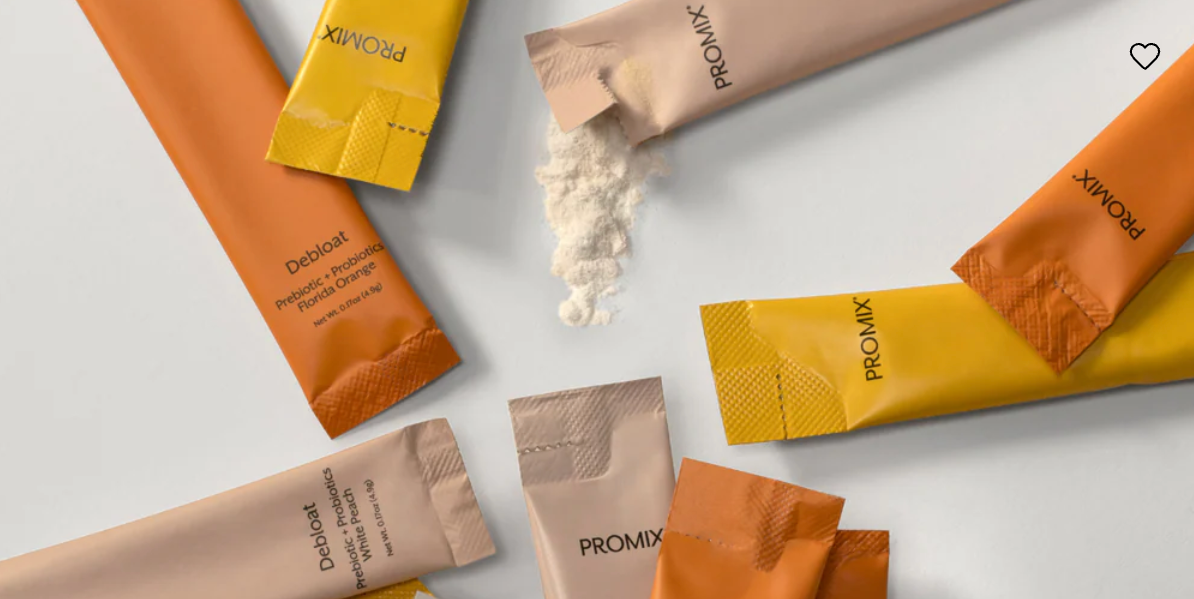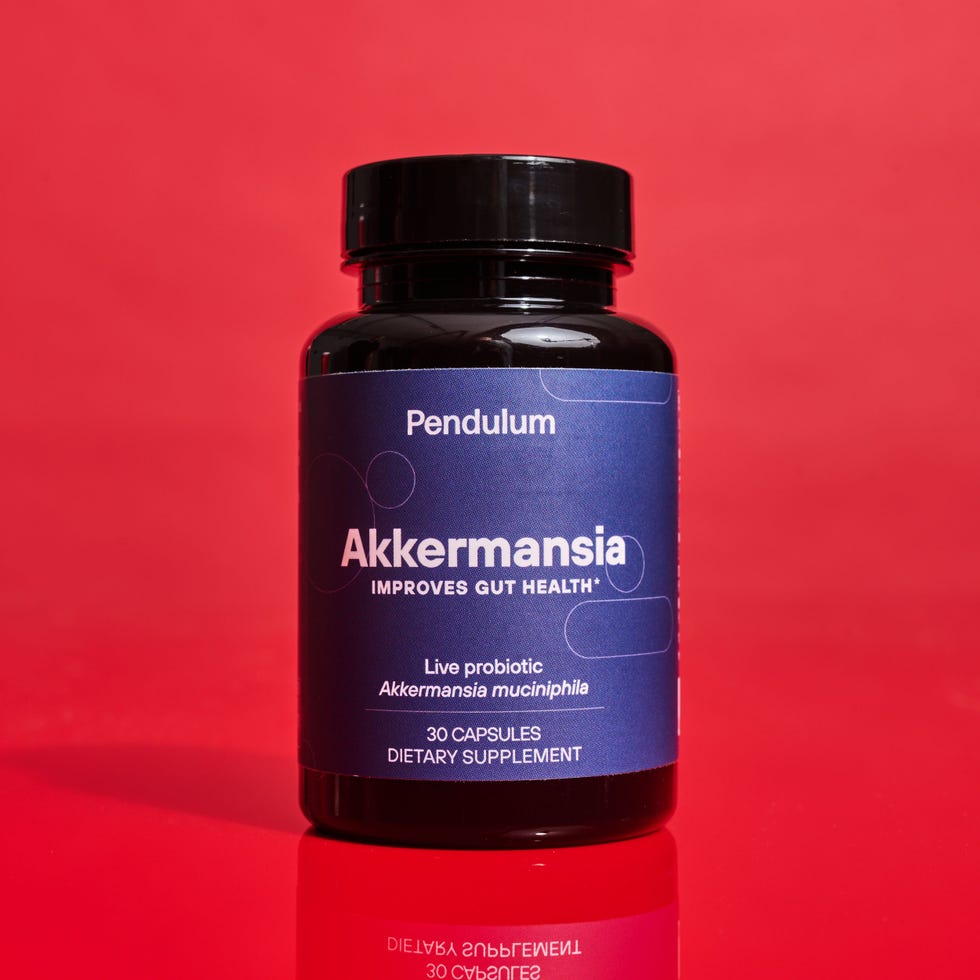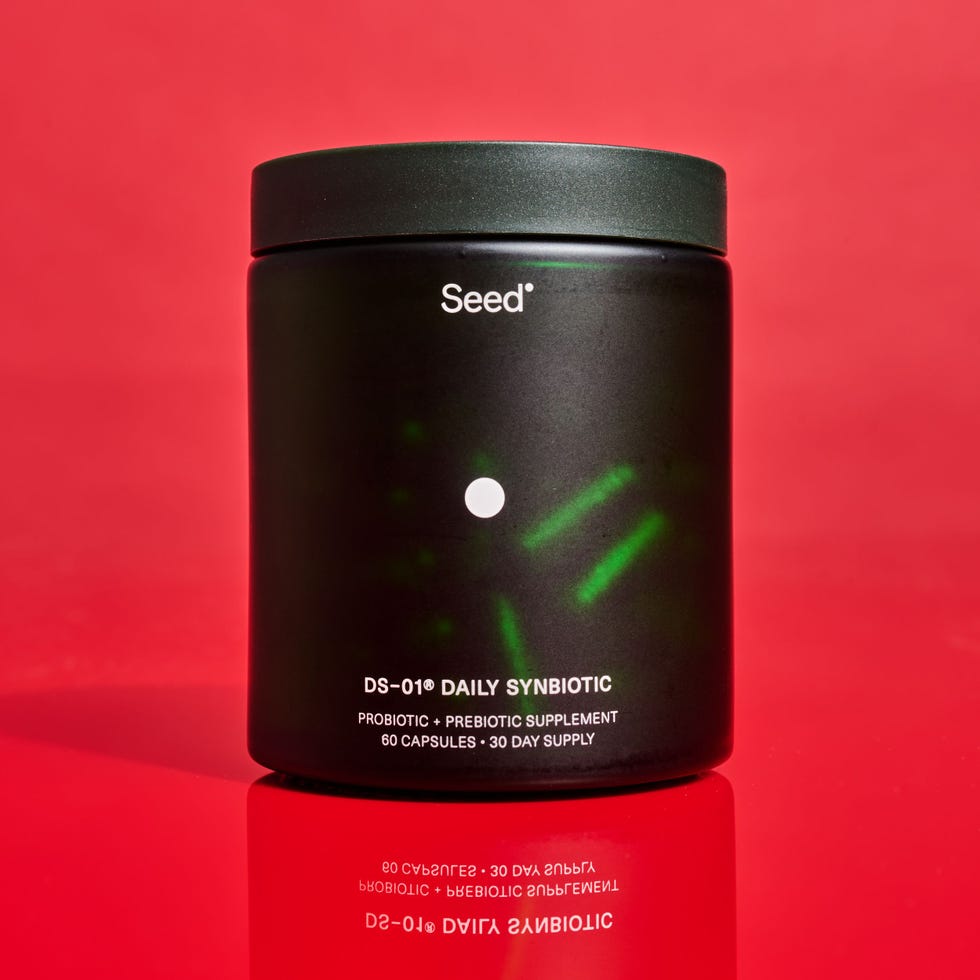The 8 Best Probiotics For Gut Health, Reviewed By A Dietitian
“Probiotics are live microorganisms, such as bacteria and/or yeast, that promote overall health and maintain the stasis, or balance, of your gut microbiome,” says Brynna Connor, MD, board-certified family medicine physician and the Healthcare Ambassador for Northwestpharmacy.com. Probiotics break down food and aid digestion, Kylene Bogden, RDN, CSSD, a sports dietitian, previously told Women’s Health. All of this keeps your hot girl stomach issues at bay.
Sounds pretty good, no? We tapped gastroenterologists and dietitians who help their patients improve their gut health (or stomach issues) for their best probiotic recommendations. Here’s everything to consider before smashing the “add to cart” button.
What To ConsiderIngredients
First, check out the bacteria strain that makes up the probiotic, because it’ll typically differ depending on the ailment or issue at hand, says Surpiya Rao, MD, a quadruple board-certified physician in internal medicine, gastroenterology, obesity, and lifestyle medicine.
For instance, Lactobacillus is one of the most common types of strains found in probiotics due to its ability to aid in digestion and improve overall gut health, says Dr. Connor. If that’s your goal, look for these specific strains on the ingredients list: Lactobacillus acidophilus, Lactobacillus rhamnosus, and Lactobacillus plantarum. But if you suffer from other issues, like diarrhea or constipation, search for other ingredients like Lactobacillus rhamnosus and Lactobacillus acidophilus, that may potentially help mitigate those symptoms, says Dr. Connor.
Once you know which probiotic strains you need, make sure there’s enough of the strain in the supp. Take note of the product’s CFU count, or the amount of live microorganisms found inside, listed on the container, Dr. Rao says. The higher the number of CFUs, the more effective the supplement is likely to be. This number should be in the billions, unless your doctor wants you to take something with a smaller amount, Dr. Rao says.
Type
Probiotics come in many different forms, including capsules, powder, and gummies, and all of them have pros and cons.
Although gummies are typically favored because of their easy-to-chew and flavorful nature, they may not be the most effective. “They typically do not contain as many probiotics as capsules or powders,” says Sarah Masukewicz, RD, LDN, CNSC, a gastroenterology dietitian at Tufts Medical Center. Capsules are often the recommended type of probiotic, as they typically deliver the most effective results via their enteric coating. “This design aims to prevent stomach acid from destroying the bacteria inside, which helps the probiotics reach the intestines,” says Masukewicz.
Powders are also another viable form of probiotics, as they can easily be digested in drinks. That said, the bacteria contained inside the powder may not be preserved as well, as a result, says Neha Pathak, MD, adjunct assistant professor of medicine at Emory University School of Medicine.
Additionally, some probiotics require refrigeration or cool temperatures for storage to preserve the live bacteria (or probiotic cultures) inside, says Joseph Salhab, MD, a Florida-based gastroenterologist. If you travel a lot and might not have access to a fridge, you might consider a probiotic that’s freeze-dried and shelf-stable instead, because it won’t need to be refrigerated.
Third-Party Testing
Buy a probiotic that’s been certified by a third-party testing agency like the National Sanitation Foundation (NSF) and United States Pharmacopeia (USP). Third-party testing ensures the supplement is a high–quality product, says Dr. Pathak, and that it doesn’t contain any unnecessary contaminants.
If testing information is not listed on the label, see if any of the probiotics you’re shopping for online are approved by doctors, which is often indicated on product pages. But the probiotics on this list have been expert-approved, according to the criteria above.
How We Chose
I’m a dietitian constantly testing the newest and buzziest supplements. For this guide, I tested three of the best probiotics on the market and evaluated them based on ingredients, type, and third-party testing. The WH team also consulted board-certified family medicine physician Brynna Connor, MD, and Surpiya Rao, MD; gastroenterologists Joseph Salhab, MD, and Kenneth Hepps, MD; gastroenterology dietitian Sarah Masukewicz, RD, LDN, CNSC, and Adjunct Assistant Professor of Medicine Neha Pathak, MD. Thousands of customer reviews and ratings were analyzed to help narrow down the list for a wide range of needs and preferences.
Ready to get your tummy issues in check? See the best expert-recommended probiotics for gut health to add to your cart ASAP.
” data-next-head/>Skip to Content
Best Overall
Available in 30 and 90-count bottles
Refridgeration not required
Easy to swallow
Cons
Needs to be taken with food
After testing a wide range of probiotics, including other premium, science-backed options, I found Pendulum Akkermansia is the best overall choice for gut health. Its star ingredient, Akkermansia muciniphila, is a next-generation probiotic strain that helps reduce inflammation in the intestinal lining to promote health. Another ingredient highlight is chicory inulin, a prebiotic that nourishes beneficial bacteria (A.K.A probiotics). It’s also a favorite among Dr. Connor, stating, “It’s great to help maintain the intestinal lining and help the gut lining continue to be regenerated daily,” which ensures that nutrients from food are being absorbed properly and that your insides can fight against pathogens that can cause infection.
From a usability perspective, Pendulum seamlessly fit into my daily routine. It’s just one capsule a day (ideally with food), easy to swallow, and the only side effect I noticed was some mild bloating during the introductory period—a common sign that the probiotics are starting to work.
Refrigeration is recommended for optimal potency, but not required, making these capsules a convenient option for supporting gut health while on the go. If you’re traveling, however, it’s a good idea to refrigerate them once you reach your destination. But the benefits go far beyond digestion—low levels of Akkermansia have been associated with obesity, type 2 diabetes, and fatty liver disease. Pendulum also excels in terms of quality and safety. It’s manufactured in an FDA-registered facility, third-party tested, and shown to be safe even at doses 10 times the daily recommendation—that level of reassurance is hard to beat.
Read more: Best Supplements
Best Drink Mix
Promix Debloat: Prebiotic + Probiotic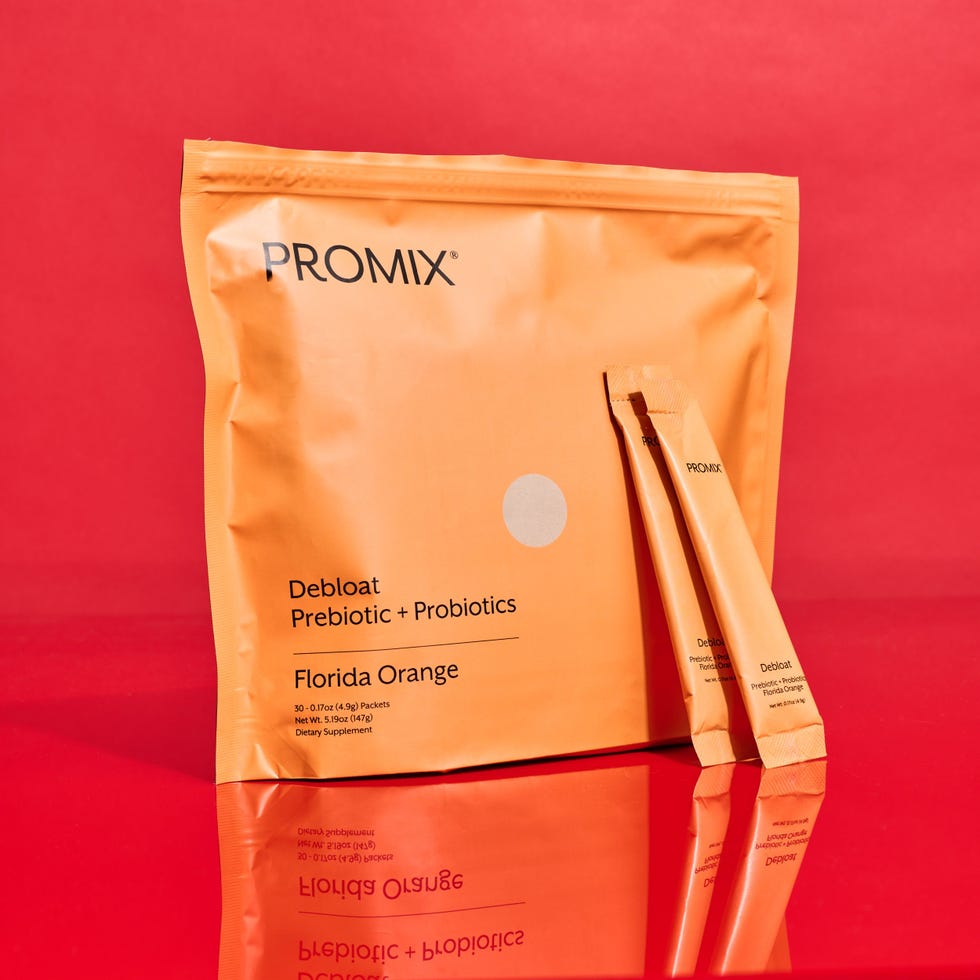 Pros
Pros
Easily mixes into water
Has both probiotics and prebiotics
Helps manage constipation
Cons
Exact amounts of each probiotic strain is not listed
Promix Debloat is a convenient pre- and probiotic drink mix, thoughtfully packaged in single-serve packets. Each delivers five billion CFUs from a trio of well-researched probiotic strains: Bacillus coagulans, Bacillus subtilis, and Bacillus clausii. These strains work together to support healthy gut function and ease common digestive discomforts, such as constipation.
WH fitness commerce editor Nicolette Accardi loves sipping on it after a big meal and notices the effects immediately. “Eating out always causes me digestive issues and painful bloating, but after introducing this into my post-restaurant regime, I notice my symptoms alleviate within a couple of hours,” she says. “My abdominal swelling lessens—plus it tastes refreshingly fruity.”
Beyond the probiotics, each serving includes 2,600 milligrams of wild, organic African baobab, providing four percent of the recommended daily value of fiber. Baobab supports digestion by adding bulk to stool, promoting regularity, and feeding probiotics as a natural prebiotic. Mixing the powder with the recommended 12 to 20 ounces of water also helps you stay hydrated, an important part of preventing and managing constipation.
While I’d prefer more transparency about the exact amounts of each probiotic strain, I appreciate the brand’s commitment to quality. Every batch undergoes independent lab testing at 100 percent GMP-certified facilities, and the results are accessible online. I also love that Debloat, like all Promix products, uses only natural ingredients and avoids anything artificial.
Advertisement – Continue Reading Below
Best Subscription
The Seed DS-01 Daily Synbiotic two-in-one capsule combines probiotics and prebiotics using ViaCap technology, a nested design that protects the probiotics as they move through your digestive tract—delivering them where they’re needed most: the colon. But it also stands out for its subscription service that delivers a supply every month, three months, or six months. Depending on your plan, you can save up to 15 percent on your purchase. Ultimately, you can save more money in the long run.
Each daily dose delivers 53.6 billion AFUs from 24 clinically studied strains—including Bifidobacterium longum and Lactobacillus plantarum—plus 400 milligrams of a prebiotic blend sourced from Indian pomegranate. This synbiotic combination supports digestion, gut barrier integrity, immune function, skin clarity, and heart health.
I found the capsules easy to take and fairly gentle on my system, aside from a little bloating on day three, albeit manageable. It’s shelf-stable, travel-friendly, and fits seamlessly into any supplement routine. WH associate style commerce editor Lily Wolhner also loves it for combating bloating. “I have always struggled with digestive issues, but the Seed Probiotic keeps me so regular (IYKYK) and helps keep my bloating at bay, which is a huge game changer and is a mainstay in my wellness routine.”
While Seed doesn’t disclose exact strain amounts, it backs its formula with clinical data and third-party testing. The brand also prioritizes sustainability, shipping a reusable glass jar and compostable refill pouches to reduce waste.
To help your body adjust, Seed recommends starting with one capsule for the first three days before moving up to the full dose of two capsules daily—ideally on an empty stomach. They also note that temporary GI discomfort may occur during the adjustment period, but should resolve within about two weeks.
Organic rice fiber, Organic rice extract blend
Best For Constipation
Garden of Life Once Daily Women’s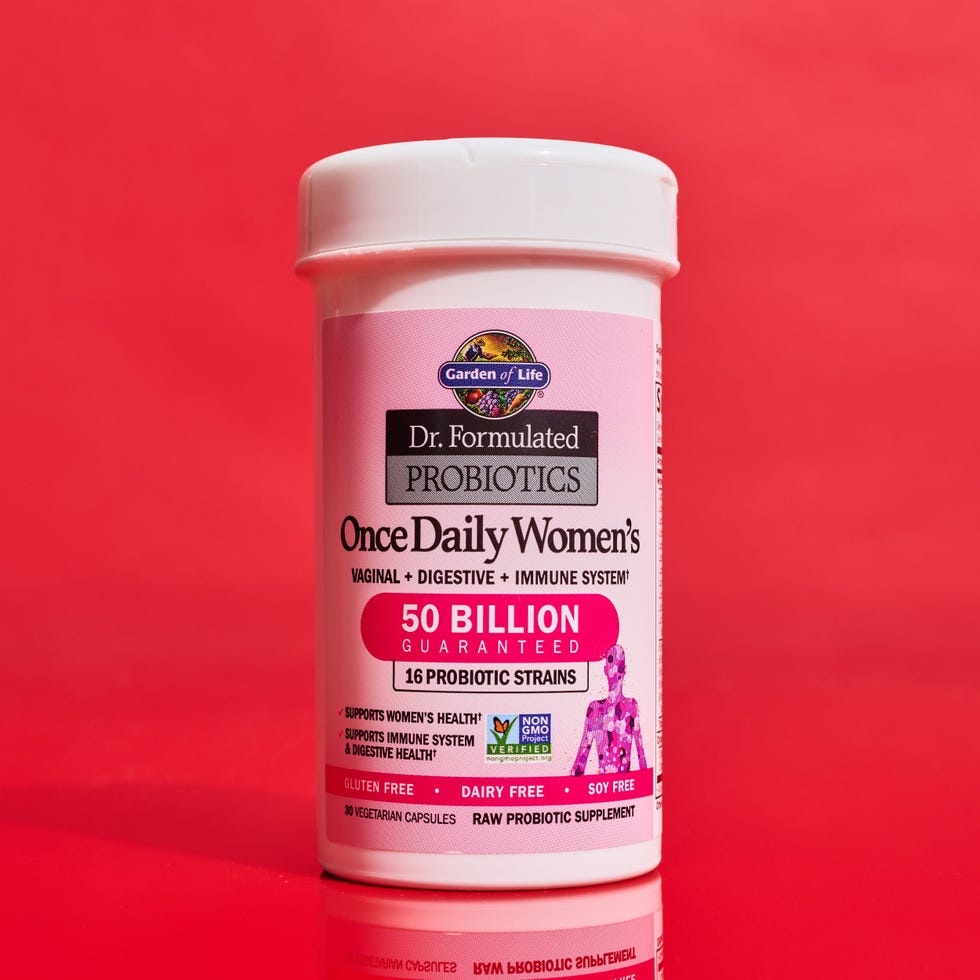 Pros
Pros
Contains a variety of bacterial strains
Doesn’t have to be taken with food
NSF-certified
Cons
Unflavored
“Garden of Life has a great probiotic with several different strains of Lactobacillus as well as Bifidobacterium, which helps to recolonize the gut microbiome,” says Dr. Connor. This is helpful because it restores the balance of that “good” and “bad” bacteria that nestles itself in your gut and helps maintain digestive health and immunity. This probiotic is also certified by the NSF, so you can rest assured that you’ll only be ingesting high-quality strains.
Plus, with 50 billion CFUs, this supplement is very effective and only needs to be taken once per day to notice results. You can do so by taking the capsule with food or water, or by dissolving the contents of the capsule into a liquid (if you have difficulty swallowing capsules like me).
Advertisement – Continue Reading Below
Best Fiber
Bellway Super Fiber + Fruit Psyllium Supplement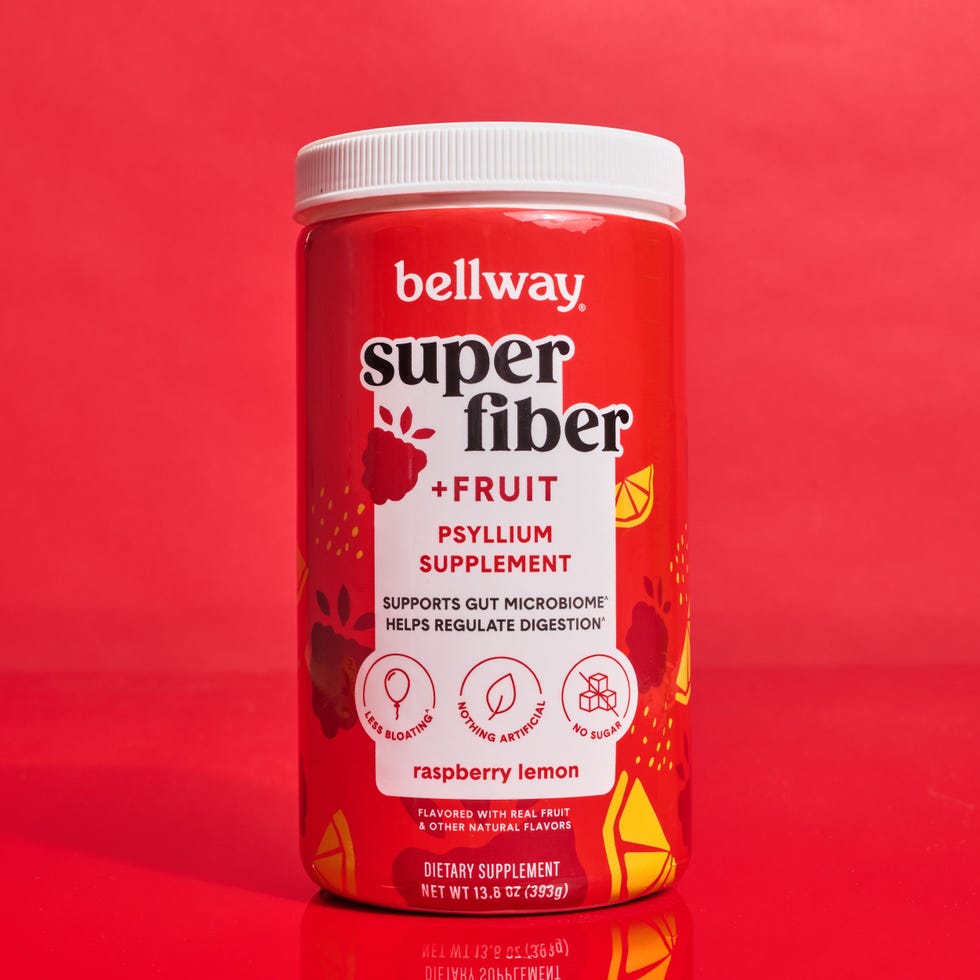 Pros
Pros
Has a citrus fruit flavor made from real fruit
Each scoop contains five grams of fiber
Good price point
Cons
Not technically a probiotic
This one is technically not a probiotic, but a prebiotic that contains five grams of fiber per serving, which doesn’t contain live organisms but instead feeds the live bacteria to help your stomach health, explains Dr. Connor. The best prebiotics—like this one—contain psyllium husk, which rebalances and supports the gut microbiome, notes Dr. Salhab, who takes Bellway. Just mix one scoop of this USDA-certified organic prebiotic into eight fluid ounces of a beverage, which will give you five grams of fiber—and you can even do so twice per day, according to Amazon.
Advertisement – Continue Reading Below

Best For Diarrhea
Culturelle Pro Strength Digestive Daily Probiotic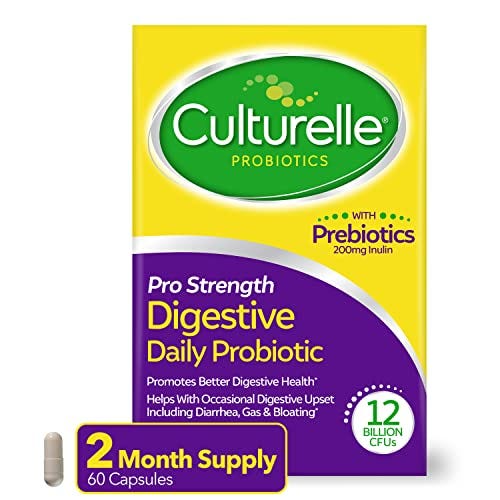 Pros
Pros
Gluten- and soy-free
A two-month supply comes in one order
Vegetarian
Cons
Pricey for a drugstore option
If you’re someone who experiences occasional diarrhea, “a probiotic with lactobacillus rhamnosus, such as Culturelle, has been shown in study after study to help patients who suffer from ongoing diarrhea,” explains Dr. Connor. Additionally, this supplement contains inulin, a prebiotic that regenerates and maintains the intestinal lining, notes Dr. Connor. In addition to being gluten-free and soy-free, this probiotic has been NSF-tested to ensure its manufacturing quality.
A caveat: Daily probiotics like this one can definitely help manage the occasional bout of diarrhea. However, if you experience diarrhea multiple times per day or for a prolonged period (about two days), you should chat with your doctor to make sure it’s not an indicator of a more serious condition or disease.
Advertisement – Continue Reading Below
Best Gluten-Free
Visbiome High Potency Probiotic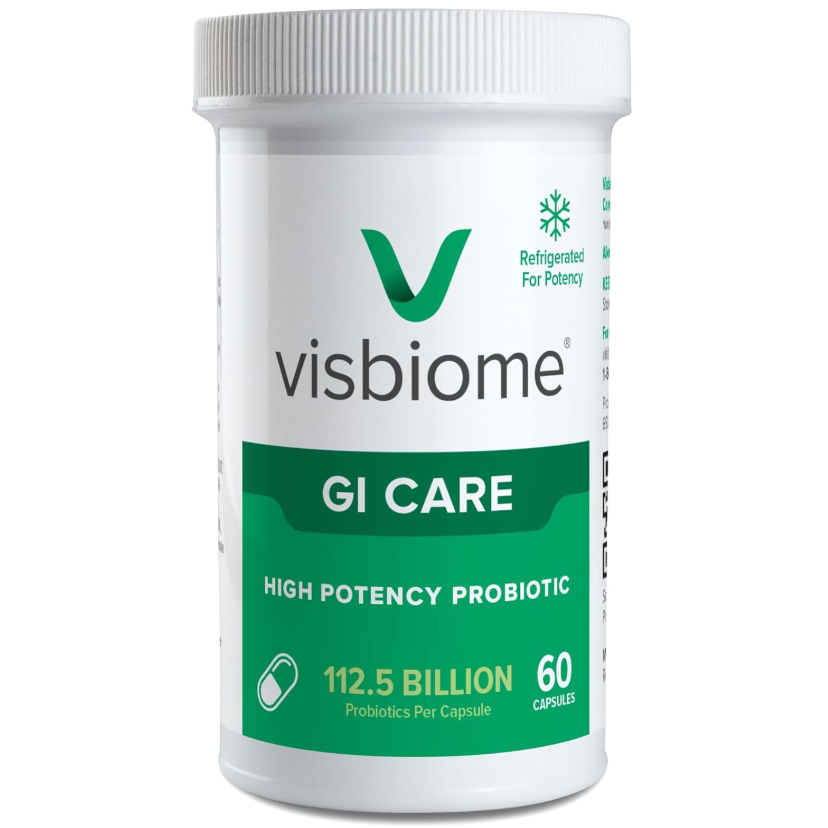 Pros
Pros
Contains 112.5 billion probiotics per capsule, so it’s very effective
Includes 60 capsules
Comes in a recyclable insulated cooler
Cons
Won’t last outside of refrigerator for too long
There are 112.5 billion (!) probiotics in this gluten-free probiotic from Visbiome. With a CFU count that high, this baby is effective. Kenneth Hepps, MD, a California-based Gastroenterologist at Providence Cedars-Sinai Tarzana Medical Center, recommends Visbiome as it contains strains of Lactobacillus that can help stop diarrhea and support the gut barrier, immune system, and digestion, especially of lactose.
With 60 capsules per serving, you’ll be set for two months. It is important to note that this probiotic requires refrigeration (or cooler temps) to thrive, so it won’t last long without access to refrigeration. In addition to being gluten-free, this probiotic can be consumed by those following temporary elimination diets like the low-FODMAP diet, as it’s low-FODMAP certified.
 Are probiotics safe to take daily?
Are probiotics safe to take daily?
For most healthy individuals, taking probiotics daily is generally safe. Any mild side effects, such as gas, are typically temporary and should subside within a short period.
Advertisement – Continue Reading Below
 Who should avoid probiotics?
Who should avoid probiotics?
Probiotics are generally safe for most healthy individuals, but if you have a serious medical condition or a weakened immune system, like if you’re critically ill, hospitalized, or immunocompromised, it’s important to check with your healthcare provider first.
 Are there any side effects?
Are there any side effects?
Most people can take probiotics without any side effects. However, some individuals may experience mild, temporary side effects, such as bloating, gas, softer stools, nausea, or a slight change in taste. These usually go away as your body adjusts.
More serious side effects are rare but have been reported, including infections, allergic reactions, sepsis (a serious response to infection), and potential concerns about antibiotic resistance. These risks primarily concern individuals with weakened immune systems or underlying medical conditions.
Advertisement – Continue Reading Below
 How long does it take to work?
How long does it take to work?
The time it takes for probiotics to start working can depend on several factors, including the specific strain of bacteria, the intended use, the product’s formula and dose, and its overall quality. For instance, some people may notice relief from diarrhea within a few days, while more significant changes to the gut microbiome could take several weeks. For optimal results, take the probiotic as directed and consult a healthcare provider for personalized guidance.
 Meet The Experts
Meet The Experts
- Brynna Connor, MD, is a board-certified family medicine physician and the Healthcare Ambassador for Northwestpharmacy.com.
- Kylene Bogden, RDN, CSSD, is a sports dietitian.
- Surpiya Rao, MD, is a quadruple board-certified physician in internal medicine, gastroenterology, obesity, and lifestyle medicine.
- Sarah Masukewicz, RD, LDN, CNSC, is a gastroenterology dietitian at Tufts Medical Center.
- Neha Pathak, MD, is an Adjunct Assistant Professor of Medicine at Emory University School of Medicine.
- Joseph Salhab, MD, is a Florida-based gastroenterologist specializing in digestion, nutrition, the pancreas, and the liver.
- Kenneth Hepps, MD, is a California-based Gastroenterologist at Providence Cedars-Sinai Tarzana Medical Center.
Advertisement – Continue Reading Below

Sydney Lappe, RDN, is a St. Louis-based dietitian with nearly a decade of experience in nutrition writing and editing. With a background in psychology, she writes about the connections between diet, fitness, and mental health.
Watch Next

Advertisement – Continue Reading Below
Advertisement – Continue Reading Below
Advertisement – Continue Reading Below
